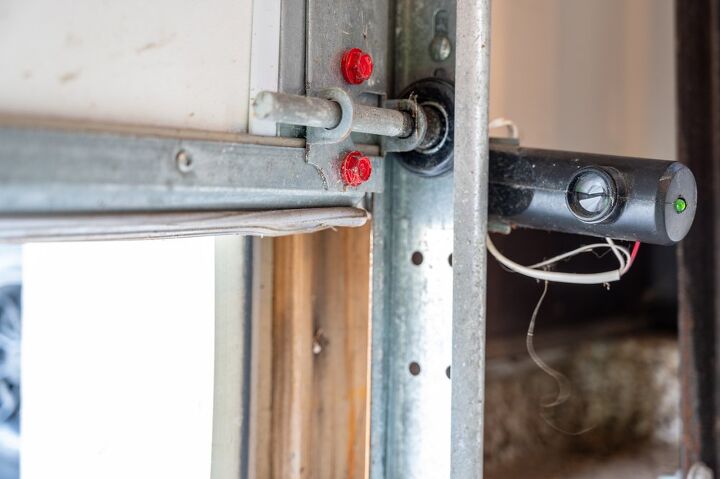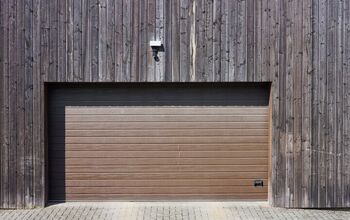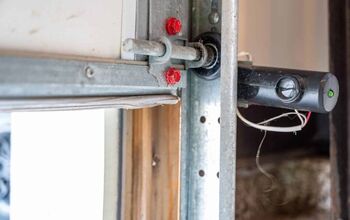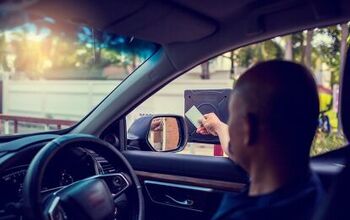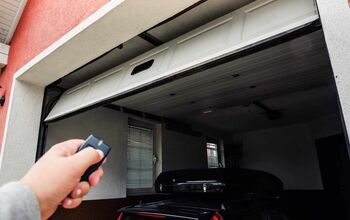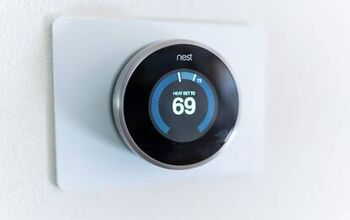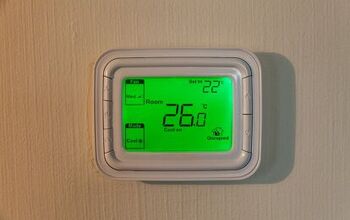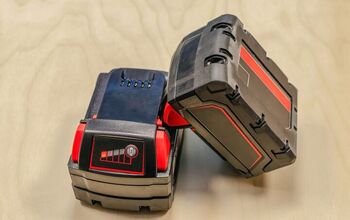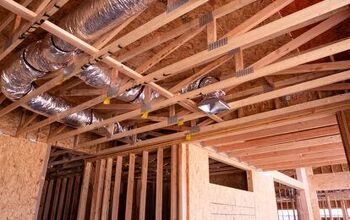How Do Garage Door Sensors Work?

Safety is one of the top priorities for nearly everyone around the world. Safety is especially important for parents with small children or who are responsible for people outside of themselves. A huge improvement in household safety came in the 1990s when garage door sensors first started getting used. A garage door sensor is designed to keep you, your family, and your belongings safe and out of harm’s way.
Garage doors have two sensors, one for each side of the garage door. The sensors have eyes usually in the form of lights that face each other from either side. If something is in the path of these lights so that the eyes can’t see each other, your garage door won’t go down. The eyes of each sensor have to be pointed towards each other at all times for your garage door to operate.
Garage door sensors are a great failsafe to keep your garage door from closing on top of you. They also prevent damage in case something valuable or even your car happens to be in the path of the garage door. However, they’re not without their pitfalls and problems. If you’re curious about how garage door sensors work or are experiencing a problem with yours, continue reading!
Do You Need Garage Door Opener Installation or Replacement?
Get free, zero-commitment quotes from pro contractors near you.

How do Garage Door Sensors Work?
Garage door sensors sit on either side of your garage door usually within 6-12 inches of the ground. They operate by each having an eye or sensor that points directly toward the sensor on the opposite side. If anything happens to get in the path of the sensors, even for an instant, your garage door won’t operate. If it’s started closing but the sensors are tripped, it will immediately reverse course and go back up.
This is extremely handy as long as you don’t have faulty sensors. A garage door that refuses to close even though nothing is blocking the sensors is an annoyance that you’ll quickly come to hate. Most sensors are sensitive enough that a blade of grass or a blowing leaf can set them off. However, while they might cause problems for some, they’re a life-saver for others.
If you have pets or children that don’t understand the dangers of a closing garage door, safety sensors are a must. They will keep your family and your possession safe even if they cause a few minor inconveniences in the process.
In fact, garage door sensors are now considered mandatory for any automatic garage door installed after the 1990s. The only garage doors that aren’t required to have sensors installed on them are manual garage doors. Manual garage doors are opened and closed by hand rather than through electricity.
Explainer Video: How the Garage Door Sensors Work in Your Home
How are Garage Door Sensors Powered?
Garage door sensors are tiny electronics that don’t require a great deal of electricity to operate. They’re installed in conjunction with an automatic garage door opener. The way it works is that your garage door opener is located on the ceiling of the garage directly in its center. The garage door tracks are on either side of the opener and the two work together to move your garage door up and down.
The opener receives power by getting plugged into an outlet located nearby, usually in the form of a 12-2 or 14-2 wire. The garage door sensors then get receive power from the garage door opener. Rather than running a 14-2 wire from your opener to each of your sensors, they only require a smaller 18-2 thermostat wire. You’ll need one wire running to each of the sensors from the opener.
How to Tell if My Garage Door Sensor is Bad
As with all electronic appliances and devices, garage door sensors aren’t immune to damage. It’s important that you know when your sensors aren’t working so that you can take the proper safety measures to operate your garage door. Faulty sensors also might keep your garage door from opening and closing and it’s crucial to know when there’s a problem. Here are a few ways to tell if your garage door sensor or sensors aren’t working.
Step 1: Perform the cardboard box test
If you suspect that your sensors aren’t working properly and are closing even if the path of the door is blocked, do the box test. Start by opening your garage door so that it’s all the way up. Next, put an empty cardboard box directly in the path of the garage door sensors. If you don’t have a box, use something that won’t damage the garage door and that you don’t care if it gets damaged. If your garage door goes down and hits the box, your sensors aren’t working. They should get tripped by the obstacle and refuse to go down.
Step 2: Check the LED light on the sensors
Most garage door sensors are equipped with LED lights that act as the eyes of the sensor. If there is no light, then there’s a wiring issue and the sensors aren’t receiving power. If the lights are blinking, the sensors are out of alignment and must be readjusted. A properly functioning garage door sensor should have a steady light pointed toward the opposite sensor.
Step 3: Inspect the 18-2 wires for damage
The sensors receive power from an 18-2 thermostat wire connected from the sensor to the opener. If either wire gets damaged, it could prevent your sensor from working as it should. The result will be that your garage door refuses to close or that it closes with obstacles blocking its path.
Common Reasons Garage Door Sensors Go Bad
Let’s go over a few of the most common problems with garage door sensors that result in your door malfunctioning.
- Your sensors are out of alignment
Garage door sensors are small and fragile and are prone to falling out of alignment. Whether you accidentally bumped the sensor with your leg or a basketball rolled into it, any little jarring action can knock them out of alignment.
- The sensors are dirty
The eyes of the sensors are protected with a thin lens or glass. Garage door sensors are sensitive enough that a dirty lens can prevent your door from going down.
- A problem with the wiring
As previously mentioned, wiring is another common issue with garage door sensors. Much like the sensors themselves, the wires that power them are small and prone to damage.
- A problem with the opener itself
Because the sensors receive power from the garage door opener it’s possible that a problem with the opener will affect the sensor. If your opener has blown a fuse or received damage in the area where the sensors are wired into, your sensors won’t work properly.
- Something is blocking the path of the sensors
The most common problem with sensors is that something is blocking the path between the two. A blade of grass, a blowing leaf, or any other type of object will impede the function of your garage door sensors.
How to Protect Garage Door Sensors
Garage door sensors are extremely small and fragile. They’re also slightly away from the wall and above the ground which means they’re exposed to danger from every side.
The best way to protect your sensors is to purchase a special protective kit that fits snugly around your sensor. This will keep them from damage due to accidental collisions with you or other objects. Outside of the protective kit, you should always make sure to keep a safe distance between your sensors and everything else in your garage.
Related Questions
Will an automatic garage door work without sensors?
A garage door will indeed work without sensors, but it isn’t recommended that you do so. Garage door sensors are there to protect you and you should have them installed on any automatic garage door.
Can I bypass my garage door sensor?
If necessary, it’s possible to bypass your garage door sensors and close your garage door if they aren’t working properly. You can only do this from the button in your garage that controls the opener. Press the garage door button and hold it in until the door is all the way down.
Do You Need Garage Door Opener Installation or Replacement?
Get free, zero-commitment quotes from pro contractors near you.

Final Thoughts
Garage door sensors are money-saving and life-saving devices, but it’s important to know how they work. Knowing how they work allows you to understand them and fix problems when they pop up. No matter how frustrating they can get, remember that garage door sensors are there to protect you and not to make your life harder.

Before I started writing, I worked for 6 plus years in the plumbing, electrical, and HVAC business. I was primarily an HVAC installer but also worked as a plumber and electrician. Now I'm a copywriter, focusing on home improvement content and guides.
More by Jalin Coblentz



